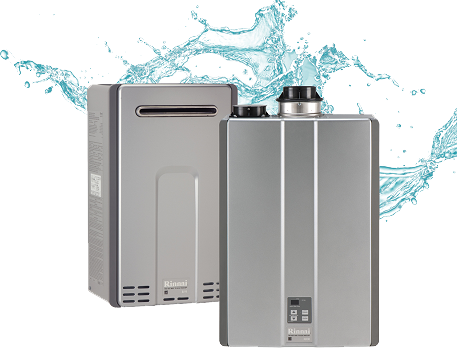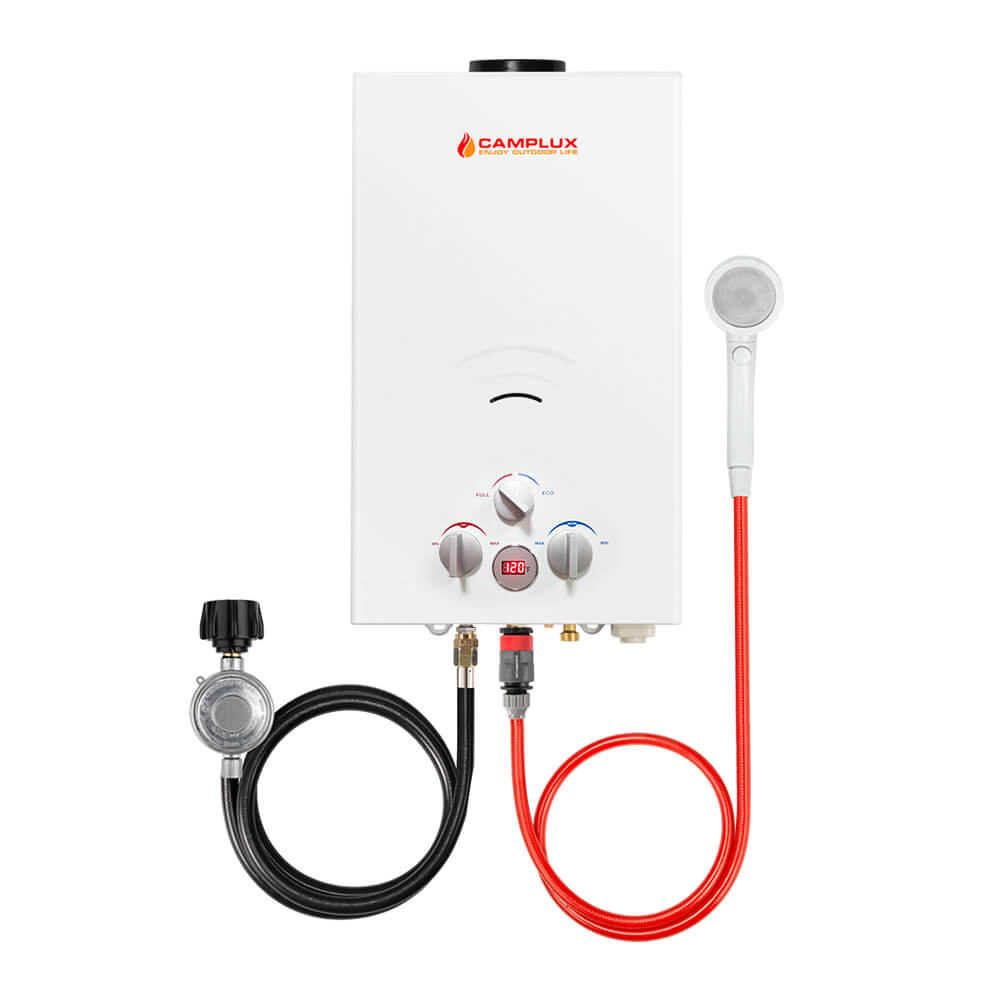This great article down below involving Unveiling the Hot Trend: The Benefits of Tankless Water is immensely informative. Don't overlook it.

In a world where comfort and effectiveness preponderate, it's no surprise that house owners are continuously on the lookout for smarter ways to manage their home's power intake and convenience. One advancement that has continuously gained appeal is the tankless water heater. But exactly what makes these systems attract attention from the conventional tank-based models a lot of us matured with? Allow's dive in and explore the benefits of tankless water heaters, helping you choose if it's time to make the switch in your home.
Intro
Photo this: you step into the shower after a long day, anticipating a relaxing waterfall of warm water, only to be greeted by icy beads since the last person used all of it up. Sound familiar? Conventional hot water heater save a fixed quantity of hot water, suggesting you're at the mercy of that container's supply. Tankless systems, on the other hand, heat water as needed. No more running out mid-shower, no more fumbling with timetables just to ensure hot water is offered.
Recognizing Tankless Hot Water Heater
What Are Tankless Hot Water Heater?
Tankless hot water heater, occasionally known as on-demand or instant water heaters, offer hot water only as it's needed. Instead of storing gallons of pre-heated water, these units kick into action the minute you activate the faucet. Water travels through a warmth exchanger, warming up in real-time, meaning you obtain a continuous flow of warm water without the requirement for a huge container sitting lazily by.
Just how Do They Vary from Traditional Systems?
Standard heaters hold a reservoir of hot water, making use of power to keep that storage tank at a consistent temperature. Tankless units eliminate the standing supply, cutting down on wasted energy and the cumbersome footprint of a huge cylinder. Essentially, you're upgrading from a "accumulation" attitude to a "made-to-order" technique.
Typical Kinds Of Tankless Devices
Tankless hot water heater generally are available in 2 selections: gas and electrical. Gas versions tend to provide greater flow rates, suitable for bigger homes, while electric designs often offer smaller sized homes and are generally simpler to set up. Furthermore, some systems are made for point-of-use (offering one fixture) while others can deal with the whole home's warm water needs.
Key Advantages of Tankless Water Heaters
Power Effectiveness and Expense Financial Savings
Say goodbye to heating up a giant container's worth of water and maintaining it toasty throughout the day. Tankless heaters lower standby energy losses, which can reduce energy expenses. While the first expense might be greater, the long-lasting cost savings often warrant the financial investment.
3. Space-Saving Style
If your home is short on storage space, removing the large tank maximizes beneficial room. Tankless devices are compact and can frequently be mounted on wall surfaces, tucked away in edges, or mounted in limited energy wardrobes without monopolizing the entire room.
4. Longer Life-span
A properly maintained tankless hot water heater can outlast its tank-based cousin. Typical containers may last 10-15 years, while tankless designs can keep downing along for twenty years or even more, making them a strong investment with time.
1. Countless Warm Water Supply
Ever before needed to set up showers so everybody gets their fair share of warm water? With tankless, that becomes a distant memory. As long as the heater's circulation ability isn't surpassed, you can take back-to-back showers without becoming a popsicle.
5. Improved Water Top Quality
Storing water in a storage tank can sometimes result in sediment buildup or a slightly "off" taste. With tankless systems, fresh water is heated up right away, reducing the chances of sediment buildup and possibly supplying cleaner-tasting water.
Factors to consider Prior To Changing
Though the benefits are compelling, it's important to take into consideration a couple of variables prior to completely committing.
Reviewing Your Home's Water Use Patterns
If your home concurrently utilizes multiple components with high hot water demand, make sure the device's circulation rate fulfills your requirements. Recognizing your usage patterns assists you select the best size and type of tankless heater.
Maintenance and Care Tips
Tankless systems are reasonably reduced upkeep, however they aren't set-it-and-forget-it appliances.
Routine Cleaning and Descaling
Hard water minerals can accumulate in the heat exchanger, influencing effectiveness. Normal descaling (commonly recommended yearly) maintains the device running at peak performance.
Yearly Professional Examinations
A yearly checkup from a professional guarantees small issues are caught early. They'll evaluate the system's performance, seek leakages, and help preserve optimum performance.
First Investment Costs
Tankless heating systems normally include a greater in advance price. In between the device itself and potential setup adjustments, the first price might give you sticker label shock. However bear in mind to see it as a long-term financial investment.
Setup Requirements
Relying on your home's infrastructure, you might require additional electrical ability or gas line upgrades. Ensure you recognize the setup needs and speak with a specialist to avoid surprises.
Making Certain Proper Air Flow
For gas models, appropriate air flow is vital to securely expel exhaust gases. Make sure venting systems are clean and properly set up to avoid any kind of potential safety hazards.
Comparing Different Brands and Models
Not all tankless water heaters are produced equal.
Looking Into Reliable Makers
Try to find trustworthy brands with a history of creating quality systems. A trusted supplier often offers better consumer support and longer guarantees.
Installment: DIY or Specialist?
While some house owners enjoy taking on projects themselves, tankless setup might not be the best time to burst out the tool kit.
Advantages and disadvantages of Do It Yourself Installation
A DIY set up might conserve cash, but it comes with dangers. Incorrect setup can bring about inadequacy or safety issues. If you're handy and have experience, it might be practical-- however proceed with caution.
Reviewing Testimonials and Individual Comments
User reviews and responses from neighbors or buddies that have gone tankless can provide useful understandings. In some cases, real-life experiences can be extra telling than advertising brochures.
When to Call a Specialist Plumber
For the majority of, calling a pro ensures every little thing's done properly. A specialist plumbing technician understands regional codes, sizing requirements, and venting parameters, minimizing the risk of incidents.
Taking full advantage of Performance
You've purchased a tankless device-- currently maximize its effectiveness.
Ideal Temperature Settings
Most individuals establish their units between 120-140 F. Adjusting the temperature can boost convenience and financial savings. Experiment to locate a pleasant place that does not squander power.
Pairing with Low-Flow Fixtures
Wish to extend your device's abilities? Think about setting up low-flow showerheads and faucets. They lower water use, permitting your tankless system to provide a constant stream of hot water without straining.
Ecological Influence
Tankless water heaters align with greener living goals.
Minimized Carbon Impact
By utilizing less power and only home heating water as needed, tankless systems can reduce your home's carbon impact, lowering your environmental influence.
Conserving Natural Resources
Much less power consumption and less lost warm water translate into less natural resources being utilized, an environmental win-win.
Who Profits The Majority Of from Tankless Heaters?
The appeal of tankless heating units is that they can match a variety of homes.
Big Households vs. Single Passengers
Large family members might enjoy the unlimited warm water supply, while single owners appreciate the power cost savings from not heating up an entire storage tank for simply one person's early morning shower.
Homeowners with Minimal Area
If your home is short on square footage, shedding the cumbersome container maximizes room for other essentials-- or possibly just more breathing space.
Eco-Conscious Consumers
Going tankless aligns with eco-friendly values, ensuring you're not throwing away energy or sources.
Future Trends in Tankless Hot Water Heater
The world of home appliances is ever-evolving, and tankless water heaters are no exemption.
Developments in Modern technology
R&D is constantly boosting warmth exchangers, making units more efficient and durable. Future models could be also quieter, a lot more small, and better suited for varying environments.
Smart Home Combination
Think of adjusting your hot water heater's temperature level by means of an app or receiving upkeep notifies on your phone. As clever home tech advancements, we'll see even more connectivity and convenience.
Conclusion
Picking a tankless hot water heater is more than simply upgrading your home's hot water system; it's investing in lasting convenience, energy performance, and a greener lifestyle. By considering your household's water use, being mindful of installation demands, and dedicating to routine maintenance, you can take pleasure in a consistent stream of warm water without the luggage of a cumbersome storage tank. As technology develops, you can anticipate also smarter, a lot more effective tankless solutions that not just make your life simpler yet likewise benefit the earth.
Pros and Cons of Tankless Water Heaters
Tankless Water Heater Pros
Saves Energy: Simply put, you re spending less energy to create hot water, so your total carbon footprint goes down, not to mention your bills. Lasts Longer Than Storage Tanks: Storage tank units need to be replaced every 15 years or so. But tankless units? They can last for 30 years before they give out on you. Constant Hot Water: Need to take a shower and don t want the water running cold? Awesome it won t. The water will stay hot the entire time because it creates hot water on demand. Saves You Money: Less water usage equals less money. Beyond that, you re not paying to keep water hot 24/7. Those savings add up quickly. Better for the Environment: Less water waste is better for everyone. It saves you money, but it s also environmentally conscious at the same time. Tankless Water Heater Cons
It Can Take a Minute: Depending on your specific unit and its placement, it can take anywhere from 10 seconds to 2 minutes to fully heat up. Because there s no storage tank, it heats water as you need it. Upfront Purchase Price: While we talked about their longevity, there s sticker shock when you look at brand-new tankless units to install. It pays for itself, but it s still a big chunk of change at first. Has its Limits: If you run multiple appliances at once, such as the dishwasher, washing machine, and maybe you take a shower at the same time, there might not be enough hot water. https://www.airsouthnow.com/blog/water-heater-service/pros-and-cons-of-tankless-water-heaters/

I discovered that piece of writing on 5 Benefits of Tankless Water Heaters while browsing the web. Sharing is caring. Helping others is fun. We take joy in your readership.
Quote